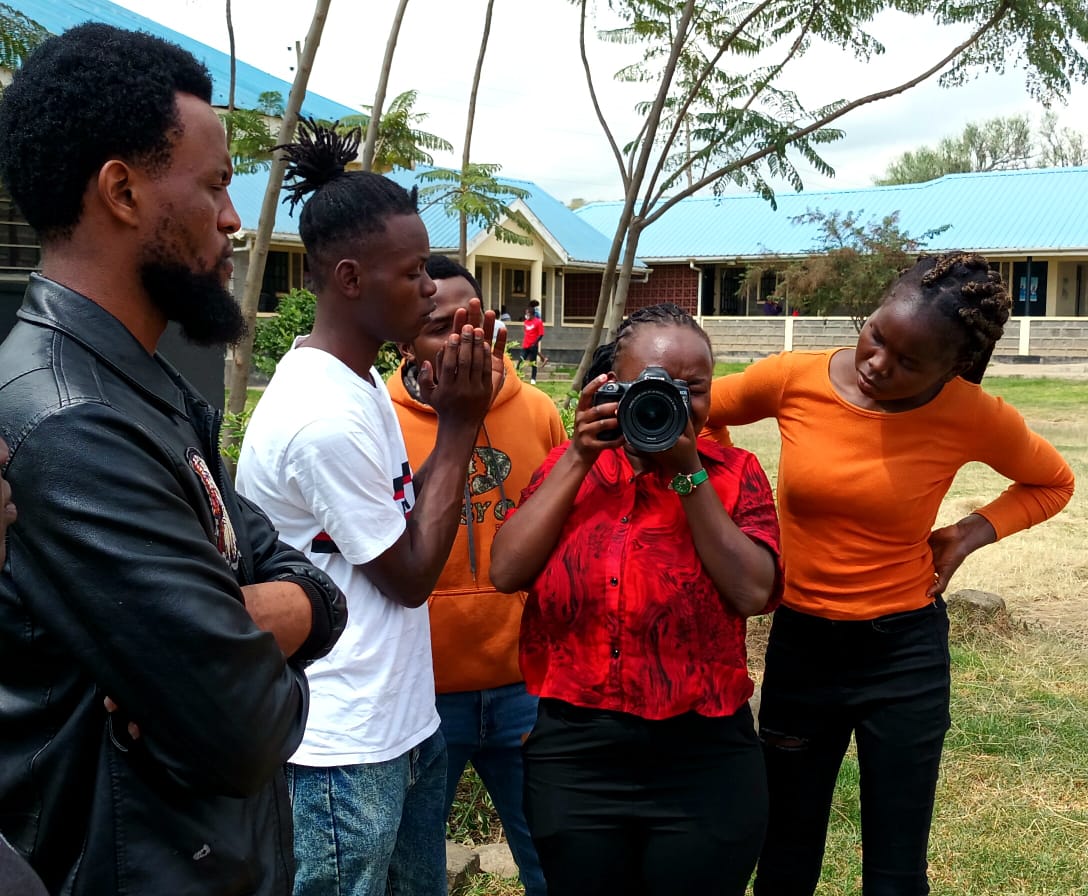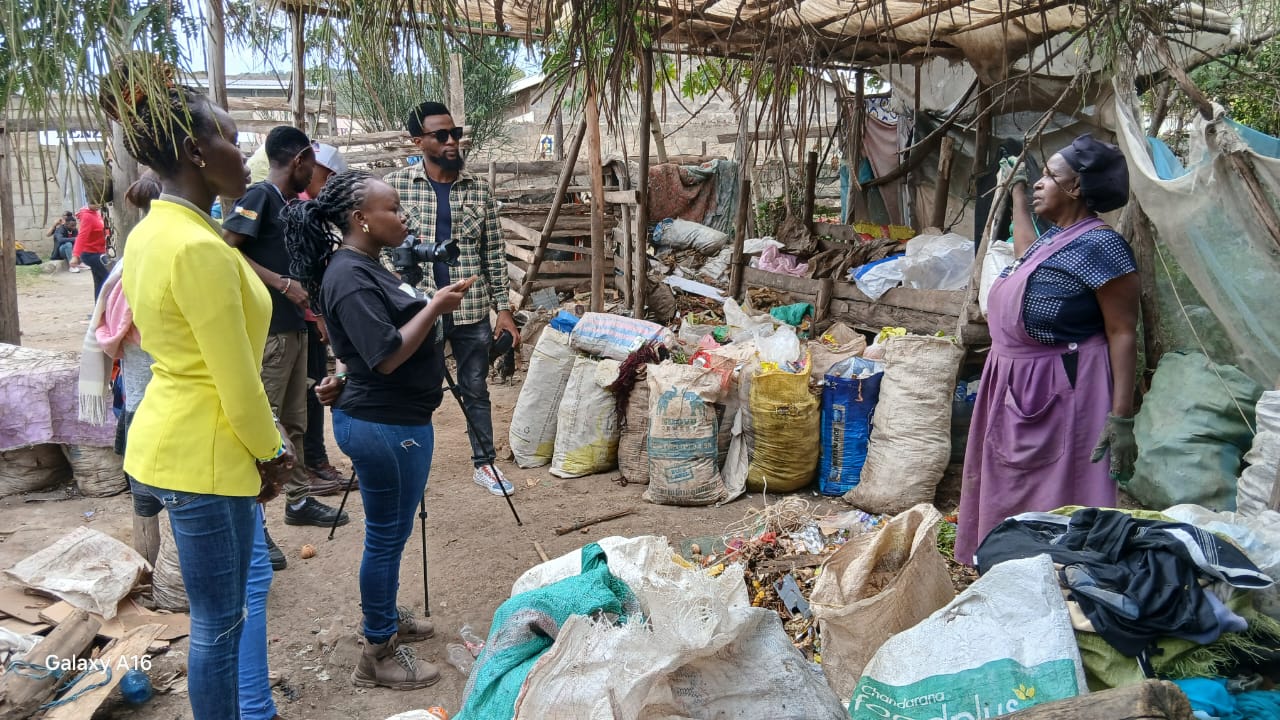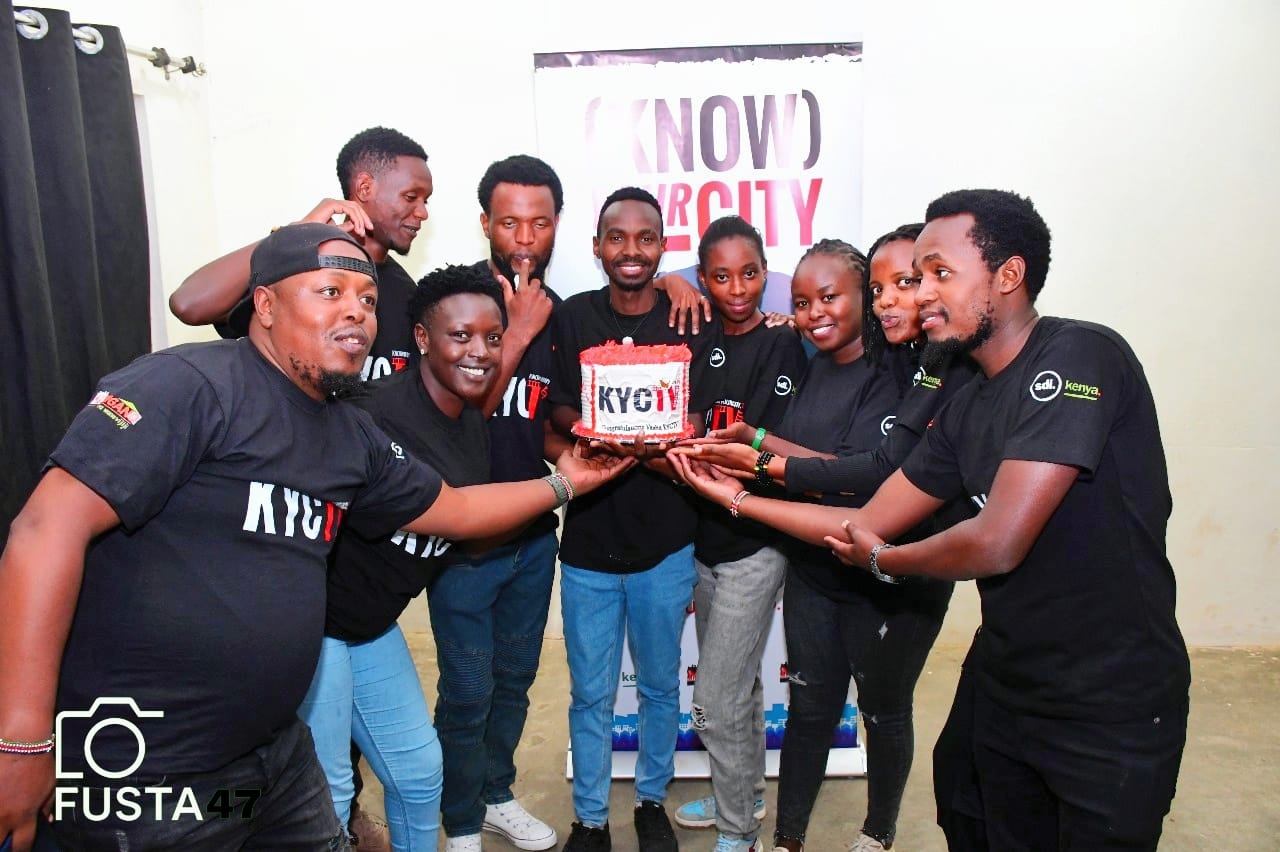With support from the Voices for Just Climate Action Project, SDI Kenya, and Muungano wa Wanavijiji brought together 11 Know Your City TV (KYCTV) youth for five days in Naivasha. Cameras, notebooks, and big ideas all in one room, ready to be turned into films that carry real voices from informal settlements to wider audiences.

Muungano wa Wanavijiji - KYCTV brings together youth from different corners of the informal settlements, photographers, videographers, poets, performers, and artists. They capture moments that rarely make the news: mothers building savings groups, youth reclaiming play spaces, and turning dumpsites into gardens. Stories that remind people informal settlements are full of life and solutions, and not just problems. So far, SDI Kenya and Muungano wa Wanavijiji have trained over 300 youth in filmmaking, photography, writing, and community storytelling.
Know Your City TV emerged from the Know Your City campaign, a global effort by SDI and local federations such as Muungano wa Wanavijiji to gather data, map communities, and tell stories that spark action. What started as simple photo documentation and interviews has grown into a platform connecting youth across settlements, cities, and even countries. Some record raw street interviews. Others shoot short films or spoken word performances. The space became a creative space for youth to tell their own stories and experiences using different art forms. The tools vary, but the goal stays the same: show communities from the inside out and remind people that no story about the urban poor is complete without the voices of those living it.
Gabriel Waceke says, “Telling stories about my community feels deeply personal and empowering. For too long, our narrative has been shaped by outsiders, mainly mainstream media, people who often misunderstand the dynamics, struggles, and strengths of our people. When I tell these stories, I do it with pride and authenticity. It feels indigenous, rooted, and solid because it comes from within. This allows me to amplify the voices of local heroes who are driving meaningful change through impactful grassroots initiatives. Their work deserves to be seen, heard, and celebrated.”
Too often, the only time a slum hits the headlines is when something goes wrong, fires, floods, or protests. Outsiders write the story and decide the angle. Many residents know this feeling: being shown but never heard. A smartphone and a bit of training can flip that script. A young storyteller can walk through familiar streets and show the parts no one usually sees: the laughter, the hustle, and the small daily victories.
The Naivasha training started on 17 June. Some of the youth were already good with cameras; others knew how to edit clips or write a tight script. Ideas bounced around the room from day one. Evans Opiyo from Kisumu and Alphonce from Nairobi, both experienced KYCTV members, offered mentorship. Sarah Ouma, SDI Kenya’s Communication Manager, offered extra guidance and energy when the days got long. Storyboarding sessions turned vague topics into clear concepts. By sunset, the first drafts were already pinned to the walls.

KYCTV team in action filming a documentary at Waste to Best Environmental Action, the team works together to tell real stories from the community.
Day two turned theory into practice. Camera settings, light, angles, and small choices turn an ordinary frame into something people want to watch. Alphonse shared tricks he learned on past shoots, such as…. Soon, the group was outside, testing everything they’d discussed, catching the light, changing positions, framing shots, and arguing about what works best.
“What I enjoyed most was the spirit of teamwork and the energy we shared during the process. There was a powerful vibe in the community, curious, amazed, and proud to see us documenting what they once considered “normal.” Highlighting waste management as more than just cleanup, explaining its role in creating cleaner settlements, and empowering circular economy innovations truly shifted perspectives. People began to see waste pickers not as outcasts, but as change makers. That shift in mindset was the most fulfilling part for me.” Gabriel Waceke
The VCA project works to ensure local climate stories are seen, heard, and shared widely both locally and internationally. With that in mind, the youth chose to document Waste to Best, a community group that transforms waste into useful products and manages the Gathengera Permaculture Farm, which promotes urban farming and greener spaces. The group benefited from the Next Level Grant Facility under VCA Phase 2, Cohort 1, demonstrating how local ideas can address climate challenges while creating cleaner, healthier settlements. Equipped with these new skills, the youth plan to keep telling even more climate adaptation stories from their communities.
The next days meant boots on the ground. The team faced the usual on-site surprises: missed lines, shifting lights, neighbors curious about the gear. Interviews were done, re-done, and tweaked until they felt right. In between, laughter and lessons mixed easily. Some moments made it into the main shoot, others into a behind-the-scenes piece the team decided to film on the fly.
On the last day, footage met the edit table. Raw clips, rough cuts, and then the small magic moments when separate scenes click together. Everyone leaned over screens, suggested cuts, and chose music. Slowly, stories formed.
“Certificates came at the end, but no one needed paper to prove what they’d gained. Each young storyteller left with a sharper eye, steadier hands, and a sense of what it takes to tell a community story well,” said Antonina Kuyo, one of the training participants
Certificates came at the end, but no one needed paper to prove what they’d gained. Each young storyteller left with a sharper eye, steadier hands, and a sense of what it takes to tell a community story well.
Pearl Awuor says “As a writer, I will use the skills gained during the training to amplify my advocacy work in the community by highlighting grassroots struggles and successes. I am now equipped with powerful tools to tell deeper, more impactful stories that raise awareness of systemic injustices and advocate for policy change.”

A celebratory moment for KYCTV Naivasha team after completion of the training. A new beginning in community story telling.
KYCTV amplifies and showcases informal settlements to the world, the parts of their lives that rarely get airtime: women pooling savings, young people planting trees, families fixing drainage, or fighting evictions together. One short film can travel far, opening doors, shifting opinions, and linking local struggles to bigger conversations.
This is not the end, More sessions are on the way. More editing tips, new shooting styles, and more nights spent debating which shot stays and which goes. But this week in Naivasha did more than sharpen technical skills. It built trust, courage, curiosity, and a sense that storytelling isn’t just for outsiders with fancy cameras but for anyone who wants their people to be seen and heard on their terms.

In her interview, Nicera Wanjiru shares the impactful stories of two young residents from Kibera informal settlement, Vivian Vushele and Charles Gicura, as they reflect on how the Covid-19 pandemic has transformed their lives. Both faced significant challenges: Vivian experienced her parents' separation, while Charles had to pivot from a career in hospitality due to the industry's collapse. Their narratives highlight the emotional and economic upheaval that many young people endured during this unprecedented time.

In this piece, Jacob Omondi, Jackline Waithaka, and Jane Wairutu discuss the profound impact of COVID-19 on youth in informal settlements like Mathare, Nairobi. The pandemic has exacerbated job losses and financial instability, particularly affecting those in the informal economic sector, where many young people rely on daily earnings from their businesses.

In Loitoktok, Kajiado County, a women’s group is transforming lives through resilience and innovation. With support from the Next Level Grant Facility under Voices for Just Climate Action, they’ve expanded urban farming and beekeeping, proving the power of collective action in climate adaptation and economic empowerment.
Join our newsletter to stay up to date on news and projects.
By subscribing you agree to our privacy policy and provide consent to receive updates from our organization.